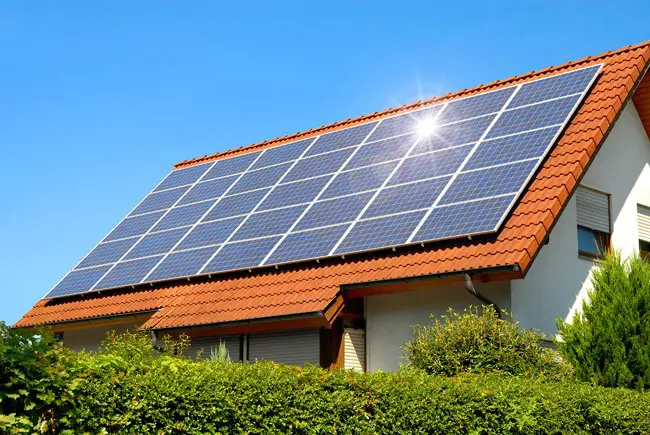
A utility-backed measure intended to put existing solar-energy regulations into the state Constitution drew indications of skepticism and support Monday from Florida Supreme Court justices.
Attorneys and supporters of a group called “Consumers for Smart Solar” defended the proposal as a means to expand solar competition. Also, they argued their intent was not simply to counter a rival amendment proposed in late 2014.
Raoul Cantero, an attorney for Consumers for Smart Solar and a former Supreme Court justice, told the court that the effort is also aimed at ensuring private solar use can’t be banned in Florida.
“Solar energy is becoming a more and more commonly discussed type of energy, and the people of Florida have a right to say we want this as constitutional right so everyone knows they have a right to purchase solar equipment and use it for their own use right now,” Cantero said.
The argument appeared to draw support from Justice R. Fred Lewis, who said constitutional status would provide elevated court protections.
“A constitutional right may prohibit certain regulations that may come up that just a general property right would not prohibit,” Lewis said.
However, Justice Barbara Pariente noted Consumers for Smart Solar had opposed the rival initiative by a group known as “Floridians for Solar Choice.” That now-delayed initiative would seek to allow businesses to generate and sell up to two megawatts of solar power to customers on the same or neighboring properties.
Pariente questioned the intent of putting regulatory measures into the Constitution.
“There’s about hundreds of statutory schemes, where something is not in the Constitution,” Pariente said. “The concern is that by putting this into the Constitution, it maintains the status quo and prevents a further expansion of those that want solar energy.”
The Supreme Court will rule on the proposed ballot wording, rather than the merits of the initiative. Justices will look at whether the ballot wording is limited to a single subject and unambiguous and that the summary meets a 75-word limit. The court did not announce when it will make a decision. If it approves, the initiative would go on the November ballot.
Backers of the rival Floridians for Solar Choice proposal, who now hope to qualify for the 2018 ballot, have argued that the Consumers for Smart Solar proposal was intended to confuse voters and drive up the costs of collecting needed petition signatures.
Stephen Smith, executive director of the Southern Alliance for Clean Energy, a key supporter of the Floridians for Solar Choice coalition, told reporters after Monday’s court arguments that the Consumers for Smart Solar proposal is an effort to maintain the current electric power structure across the state.
“They actually put the word ‘subsidy’ in there, they put ‘choice’ in the title, it’s clearly misleading,” Smith said. “They’re misleading the voters to think they’re improving solar.”
The Consumers for Smart Solar ballot summary states: “This amendment establishes a right under Florida’s constitution for consumers to own or lease solar equipment installed on their property to generate electricity for their own use. State and local governments shall retain their abilities to protect consumer rights and public health, safety and welfare, and to ensure that consumers who do not choose to install solar are not required to subsidize the costs of backup power and electric grid access to those who do.”
The ballot title states: “Rights of Electricity Consumers Regarding Solar Energy Choice.”
With financial support from Florida Power & Light, Duke Energy, Tampa Electric and Gulf Power, the Consumers for Smart Solar proposal had raised $6.98 million as of Jan. 31, compared to the $1.52 million that was generated by Floridians for Solar Choice.
In October, the justices ruled 6-1 to support the wording of the Floridians for Solar Choice proposal. Justice Ricky Polston, who was the lone dissenter when the ballot language of the Floridians for Solar Choice proposal was given the green light, did not ask any questions Monday.
–News Service of Florida





























Leave a Reply